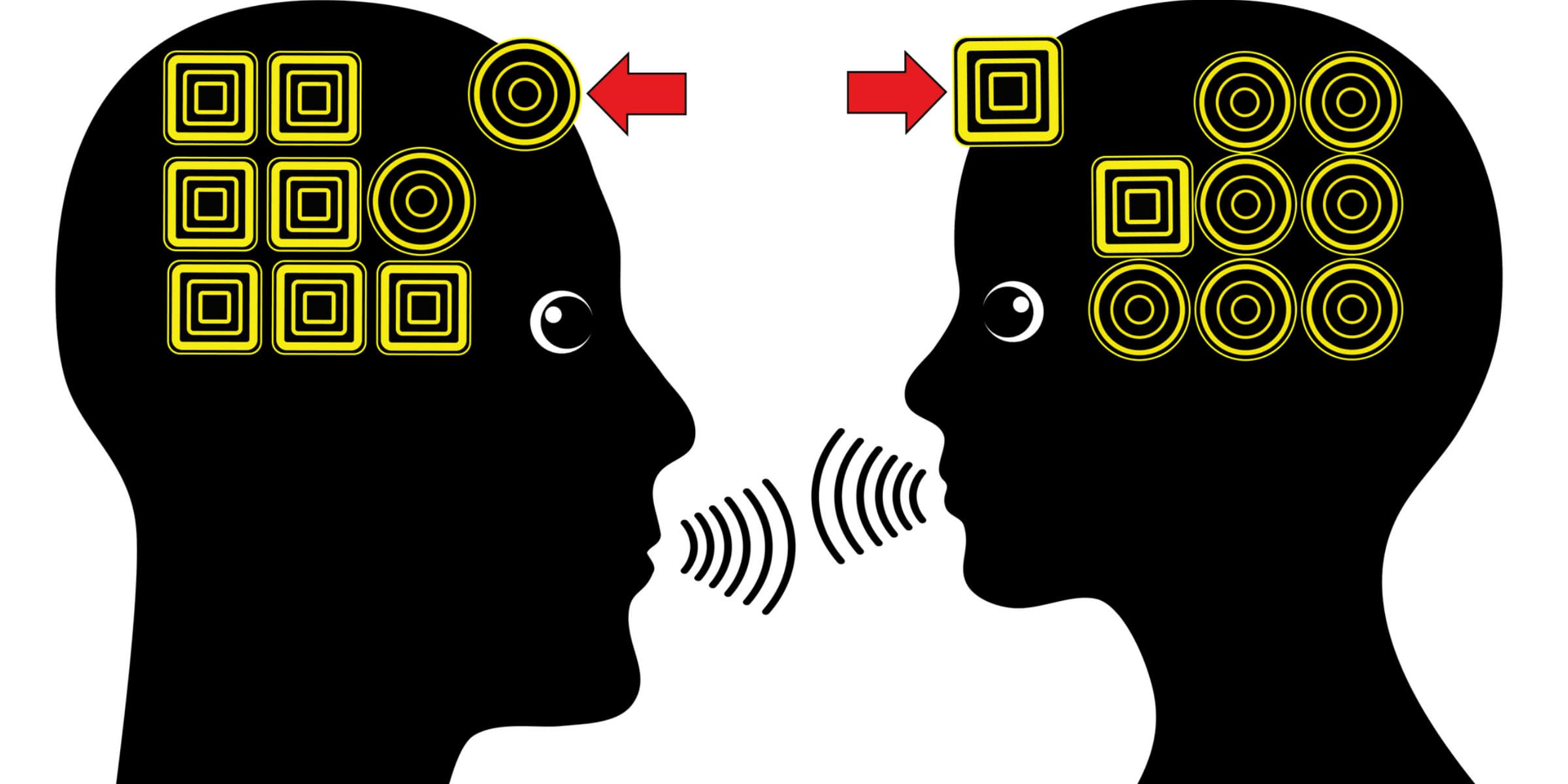Do you struggle to connect with others? Are your conversations often one-sided and lacking in depth? If so, you may benefit from improving your listening skills.
Listening is an art form that requires patience, presence, and a willingness to truly understand another person’s perspective. It is a key component in building rapport and fostering strong relationships.
The power of listening lies in its ability to create a safe space for others to share their thoughts and feelings. When you actively listen, you show that you value the speaker’s words and are invested in their experiences. This can lead to greater trust, empathy, and understanding between you and the person you are communicating with.
In this article, we will explore the importance of active listening, the power dynamics of communication, and practical strategies for improving your listening skills. By mastering the art of listening, you can build stronger connections with others and enhance your overall quality of life.
The Importance of Active Listening
You can’t just nod your head and pretend to care, you need to actively listen if you want to truly connect with others. Active listening requires more than just hearing the words someone says. It involves paying attention to nonverbal cues, asking clarifying questions, and demonstrating empathy.
When you actively listen to someone, you give them the gift of feeling heard and understood.
Improving concentration is a key component of active listening. It’s easy to become distracted when someone is speaking, especially if you’re in a noisy or busy environment. However, to truly connect with someone, you need to make a conscious effort to focus on what they’re saying.
This means putting away your phone, turning off the TV, and giving the person your undivided attention. When you’re fully present in the moment, you’ll be able to pick up on nuances in their tone and body language that you might have missed otherwise.
Empathy in listening is another important aspect of active listening. It involves putting yourself in the other person’s shoes and trying to understand their perspective. This doesn’t mean you have to agree with them, but it does mean you need to be open to their point of view.
When you demonstrate empathy in your listening, you create a safe space for the other person to express themselves. They’ll feel heard and valued, which will strengthen your connection with them.
By actively listening to others, you can build rapport and deepen your relationships. Improving concentration and demonstrating empathy are two essential elements of active listening that can help you connect with others on a deeper level.
So, the next time someone is speaking to you, put away your distractions and listen with an open heart and mind. You might be surprised at how much stronger your connection with them becomes.
Understanding the Power Dynamics of Communication
By understanding the power dynamics of communication, you can unlock the true potential of your interactions. Power dynamics refer to the way people interact with each other based on their hierarchy and influence.
It is important to recognize that power dynamics exist in every interaction, whether it’s between two individuals or within a group setting. To navigate power dynamics effectively, it’s crucial to be aware of your own power and how it affects others.
This means recognizing your own privilege and how it may impact the way you communicate with others. It also means being mindful of how you use your power and influence in conversations. By being aware of your own power dynamics, you can create a more equitable and respectful environment for everyone involved.
In addition, understanding power dynamics can help you build rapport with others. By acknowledging and respecting the power dynamics at play, you can create a sense of trust and understanding with the people you are communicating with.
This can lead to more productive and meaningful conversations, as well as stronger relationships overall. Remember, effective communication is not just about what you say, but also how you say it and the power dynamics at play.
Overcoming Barriers to Effective Listening
To improve your communication skills, it’s important to recognize the obstacles that may hinder your ability to listen effectively.
One of the most common listening misconceptions is assuming that hearing and listening are the same thing. Hearing is a passive process, while listening requires active engagement.
Another misconception is that multitasking while listening makes you more productive. However, this isn’t the case. When you’re multitasking, you’re not fully present in the conversation, and you may miss important details.
To overcome these barriers to effective listening, you need to practice techniques for mindful listening.
One technique is to pay attention to nonverbal cues such as facial expressions and body language. These cues can convey a lot of information about a person’s thoughts and emotions.
Another technique is to practice empathy by putting yourself in the other person’s shoes and trying to understand their perspective. This will help you to connect with the person and build rapport.
By practicing mindful listening, you can improve your communication skills and build stronger relationships. When you listen actively and with empathy, you show that you value the other person’s thoughts and feelings.
This creates a safe and respectful space for open and honest communication. Remember, listening is a key component of effective communication, and it requires practice and patience to master.
Practical Strategies for Improving Your Listening Skills
If you want to become a better listener, check out these practical strategies for improving your skills!
First, pay attention to body language. Nonverbal cues can provide valuable insight into what the speaker is really feeling. Look for facial expressions, posture, and gestures to help you understand the message behind the words. By tuning into these signals, you can gain a deeper understanding of the speaker’s emotions and motivations.
Another key strategy is to use empathetic responses. This means acknowledging the speaker’s feelings and showing that you understand their perspective. For example, you might say, “I can see why you’d feel that way” or “That must’ve been really difficult for you.” Empathy helps build rapport and trust between the speaker and listener, creating a more positive and productive conversation.
Finally, practice active listening. This means focusing your attention fully on the speaker, rather than thinking about your own response or distractions. Use verbal cues, such as nodding or saying “uh-huh,” to show that you’re engaged and interested. By giving your full attention to the speaker, you can build a stronger connection and gain a deeper understanding of their thoughts and feelings.
Use open-ended questions to encourage the speaker to share more information. Avoid interrupting or imposing your own opinions on the speaker. Take notes to help you remember important points and show that you’re invested in the conversation.
By incorporating these strategies into your listening skills, you can become a more effective communicator and build stronger relationships with others. Remember, listening isn’t just about hearing the words – it’s about understanding the message behind them.
Building Stronger Connections through Listening
Enhancing your ability to actively listen holds immense value in fostering meaningful connections with others. By practicing empathy-centered listening and mindful communication techniques, you can build stronger relationships and create a safe space for others to express themselves. Empathy-centered listening means putting yourself in the other person’s shoes and trying to understand their perspective. Mindful communication techniques involve being fully present in the moment and paying attention to the conversation without distractions.
To improve your empathy-centered listening skills, it’s essential to focus on the other person’s words, body language, and tone. Try to avoid interrupting or tuning out during the conversation and validate the other person’s feelings by acknowledging and accepting them. By doing so, you show the other person that you care about them and their emotions, which can help build trust and rapport.
Mindful communication techniques involve being present in the moment, paying attention to the conversation without distractions, and avoiding judgment or criticism. It’s also essential to practice active listening, which means reflecting back on what the other person said to ensure you understood their message correctly. By doing so, you can avoid misunderstandings and show the other person that you value their thoughts and opinions. By incorporating these techniques into your interactions, you can build stronger connections with others and create a more compassionate, empathetic world.
How Does Active Listening Contribute to Building Rapport in Relationships?
Active listening is essential in building rapport in relationships. By practicing the art of listening, you show genuine interest in the other person’s thoughts and feelings. This fosters trust and understanding, leading to stronger connections and better communication. The result is more harmonious and fulfilling relationships.
Conclusion
Congratulations! You’ve now learned the art of listening, which is an essential skill for building rapport.
By actively listening, you show empathy, understanding, and compassion. You’ve learned to be aware of the power dynamics of communication, and you know how to overcome barriers to effective listening.
You’ve also learned practical strategies for improving your listening skills, such as staying focused, asking questions, and summarizing what you’ve heard.
By mastering the art of listening, you can build stronger connections with others. You can create a safe space where people feel heard and understood. You can show respect and appreciation for others’ perspectives, even if you don’t always agree with them.
So go forth and listen with an open heart and an open mind. You never know what you might learn or who you might connect with.
Happy listening!





